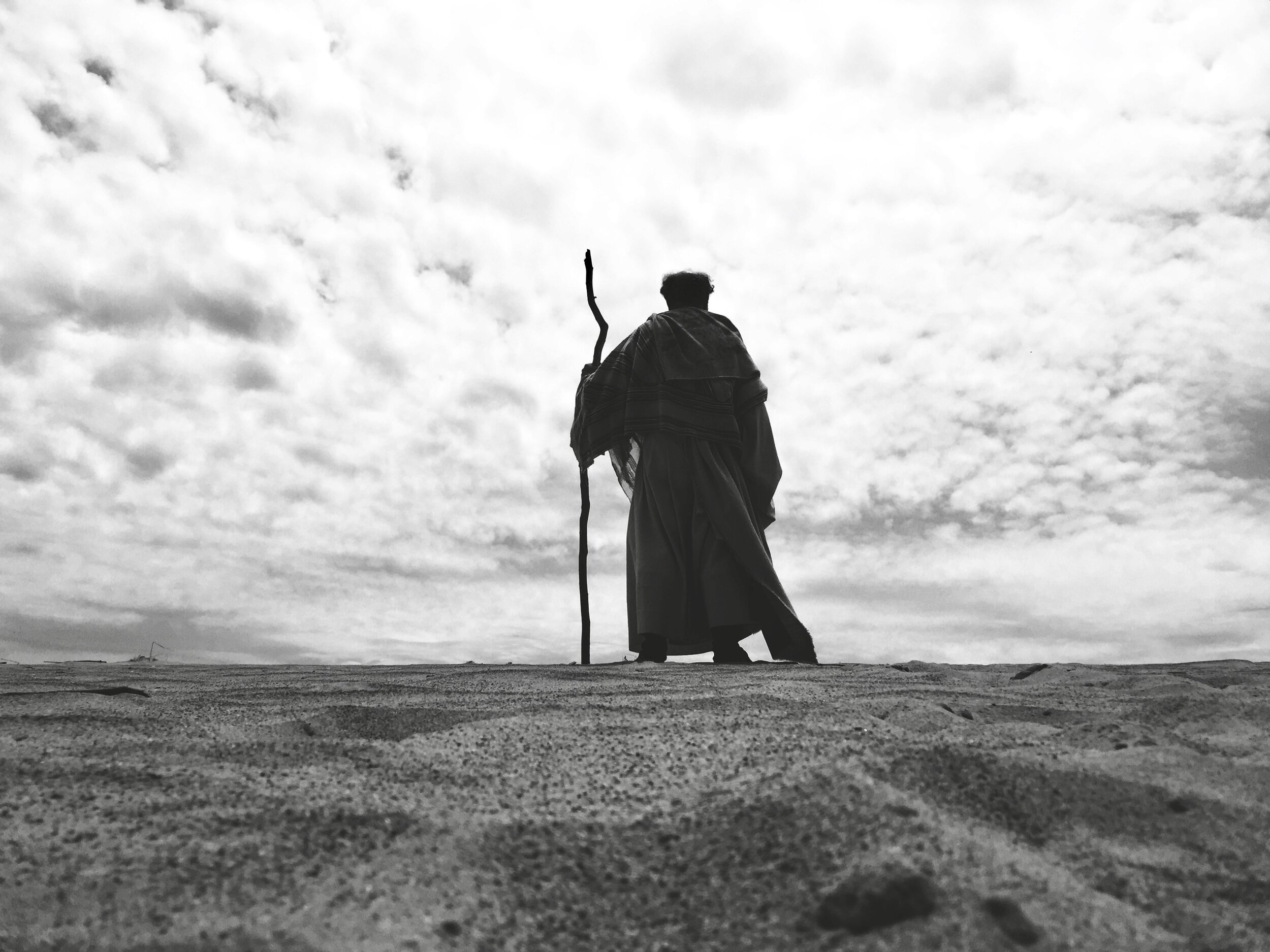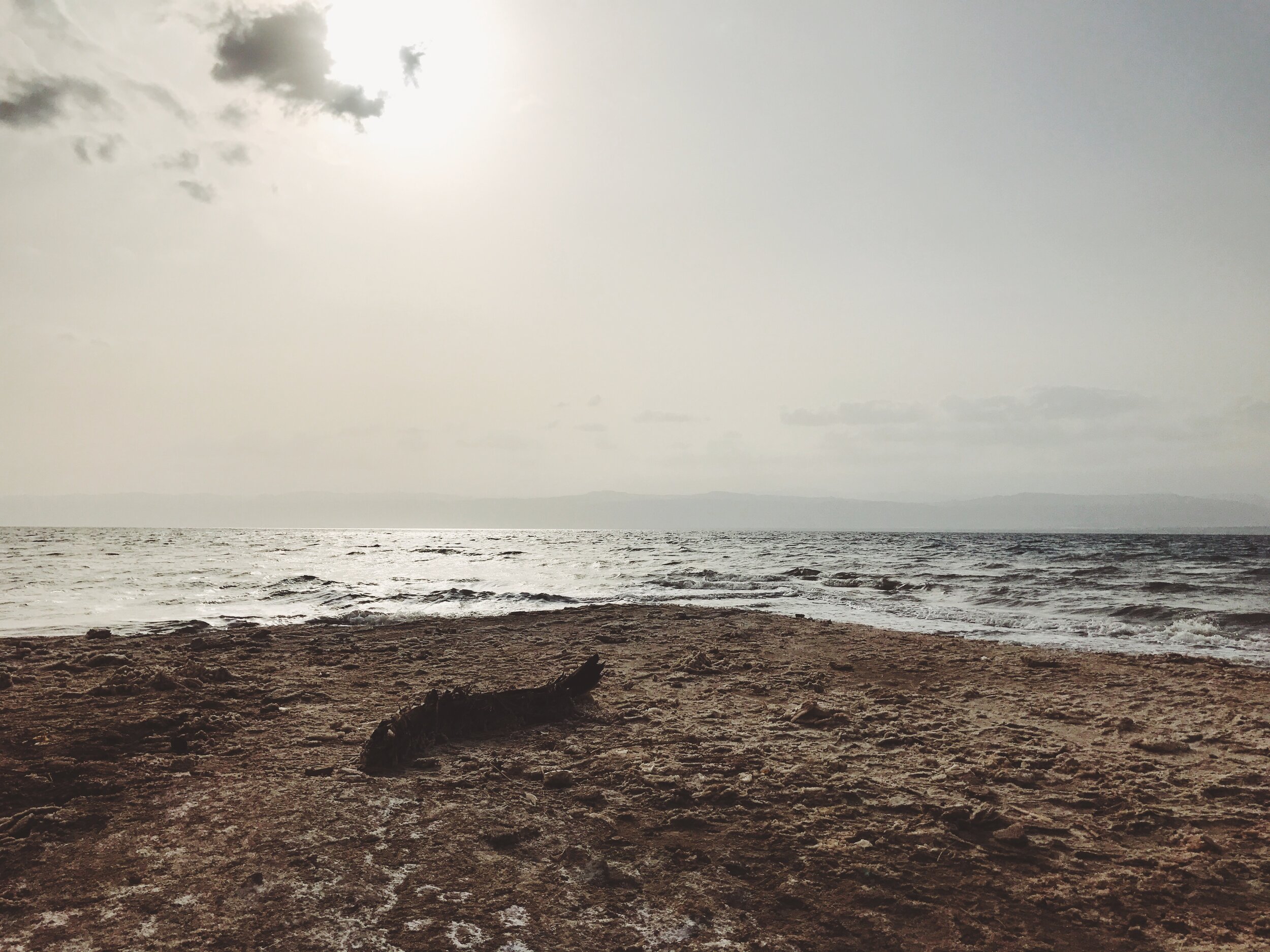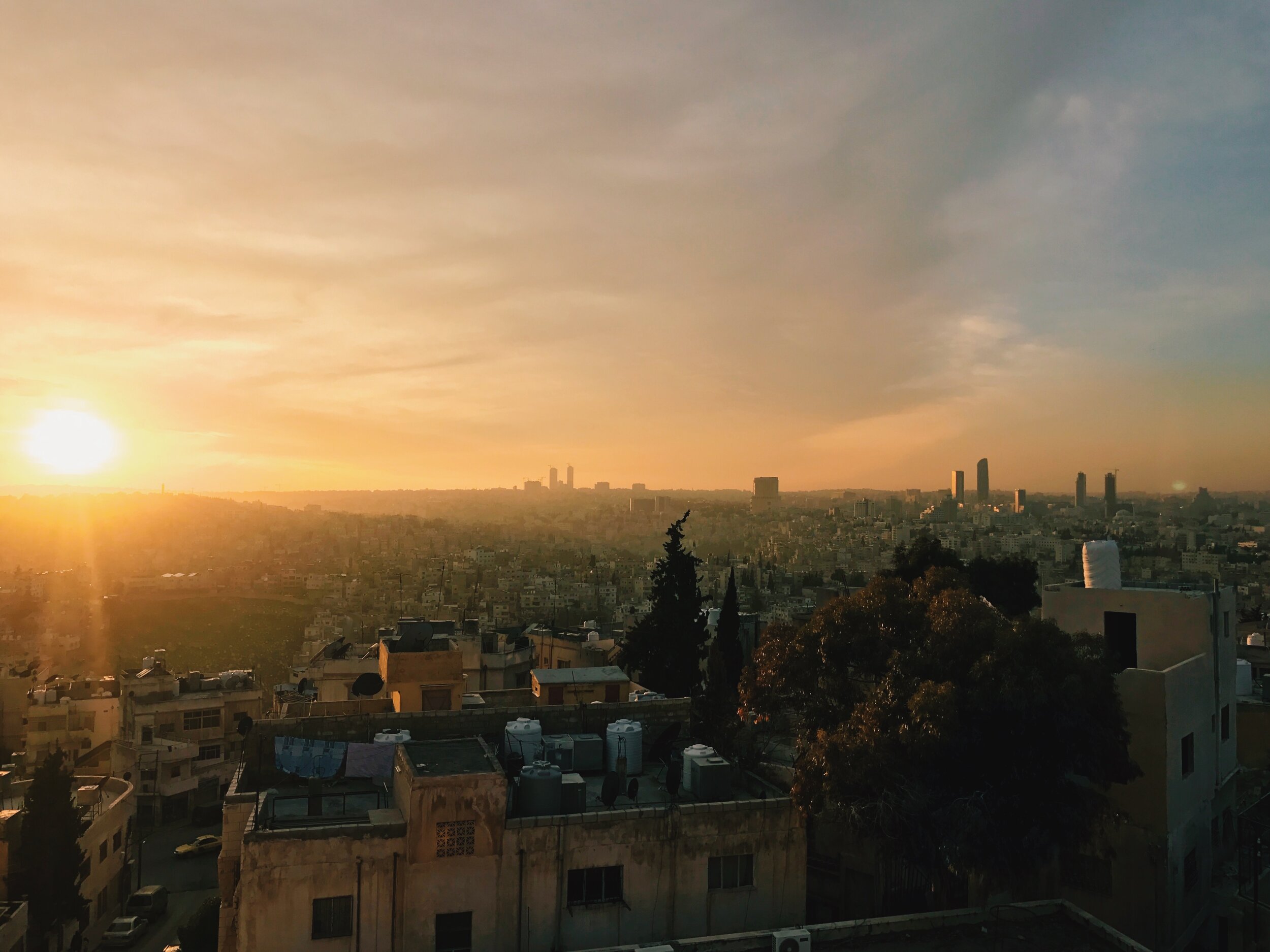 He squinted, deepening the creases at the corners of his eyes as he raised his hand to shield them from the late afternoon sun. In the distance, past the lake that lay silvery and shimmering in the valley, he could see the shore rise up to a ridge, and beyond that the rolling hills that lost themselves to haze and the horizon. He realized he’d been standing there for quite some time, almost afraid to blink, worried that the world laid out before him would wave into a mirage and be gone. The heat rising up unrelentingly from the desert sand underneath his feet was suddenly tempered by a breeze, and he finally dared to close his eyes.
He squinted, deepening the creases at the corners of his eyes as he raised his hand to shield them from the late afternoon sun. In the distance, past the lake that lay silvery and shimmering in the valley, he could see the shore rise up to a ridge, and beyond that the rolling hills that lost themselves to haze and the horizon. He realized he’d been standing there for quite some time, almost afraid to blink, worried that the world laid out before him would wave into a mirage and be gone. The heat rising up unrelentingly from the desert sand underneath his feet was suddenly tempered by a breeze, and he finally dared to close his eyes.
He remembered all the miles, the distance, the heat and the thirst, the wondering and wandering. He thought of the climb up this mountain, an ascent to an end that would mark a new beginning. His breath was slowing, finally coming back to its regular rhythm after the exertion. He opened his eyes again, thankful that they hadn’t dimmed in his old age. Surely it must be some kind of grace that they’d stayed true enough to let him see the land before him undiminished.
Then he heard a voice, one he knew well.
“This is the land I promised. I have let you see it with your eyes, but you shall not go over there.” A journey not yet complete had come to an inexorable end. Almost there, but not quite. Still, Moses would not be the only one of God’s people who would never lay foundations in the soil of the promised land. There was, of course, a whole generation that had squandered the favor of God, who had been forced to wander until the last of them had passed. Also, there were the tribes of Gad and Reuben.
A journey not yet complete had come to an inexorable end. Almost there, but not quite. Still, Moses would not be the only one of God’s people who would never lay foundations in the soil of the promised land. There was, of course, a whole generation that had squandered the favor of God, who had been forced to wander until the last of them had passed. Also, there were the tribes of Gad and Reuben.
Months before, when the Israelites had first encamped on the eastern shore of Jordan near the opening to the Dead Sea, the leaders of these two tribes noted that the land in which they’d stopped might be favorable for a permanent settlement. They’d gone to Moses and asked if they might be allowed to stay, preferring to make this land, situated so close to the promised land, their lasting home.
At first, Moses had been incensed. He accused them of trying to abandon the rest of the nation. He worried it would demoralize the whole population. After all, the work would not be over once the people had crossed over the Jordan. The promised land was full of people and cities that needed to be fought and conquered. He saw history repeating itself, remembering that this exact kind of cowardice had forced them to wander for forty years. He confronted them, saying, “Shall your brothers go to the war while you sit here?”
But Moses had misunderstood their intentions. The leaders of Gad and Reuben assured Moses that they weren’t abandoning their brothers. In fact, though they wanted to call the land east of the Jordan home, they pledged to cross over with the rest and fight mightily to free the land the Lord had promised. Then and only then would they return to live in the land they’d grown to love, the land they longed to call home. With this promise of bravery and valor, Moses agreed to let them live in this place that was not quite the promised land, this place that was almost there.
Today, that place is modern day Jordan. A couple weeks ago I spent some time in Jordan. I couldn’t help but be overwhelmed by a profound sense of “place,” a feeling made even more acute by the fact that I happened to be reading through the end of Deuteronomy during my time there. That part of the biblical narrative tells the story of hundreds of thousands of Israelites, refugees, people who were fleeing blatant oppression in the hopes of making a new life somewhere else. Then they find themselves on the cusp of that new life, camped on it’s shores, as they prepare to cross the Jordan into the promised land.  Over the last decade, Jordan has been inundated with refugees from Sudan, Palestine, Iraq, and Syria, people who have fled their homelands to escape persecution, warfare, and oppression. The population of Jordan has boomed, with some estimates claiming that more than 40% of people who now live in Jordan are refugees.
Over the last decade, Jordan has been inundated with refugees from Sudan, Palestine, Iraq, and Syria, people who have fled their homelands to escape persecution, warfare, and oppression. The population of Jordan has boomed, with some estimates claiming that more than 40% of people who now live in Jordan are refugees.
But many of them don’t want to be there, at least not forever. Many of them have a dream of making it somewhere else, or of being able to go home; they hope to make it to their promised land. They’re almost there, but not quite.
 And what I saw during my time there is that there are many Jordanians who are committed to helping them, Jordanians who are proud to call the land east of the Jordan their home, but who are willing to fight to help others find their own place in the world. I saw many Christians—churches, pastors, volunteers, translators, and case workers—who are like the modern-day tribes of Gad and Reuben, heroes who are trading their own comfort in order to go to battle on behalf of their brothers and sisters.
And what I saw during my time there is that there are many Jordanians who are committed to helping them, Jordanians who are proud to call the land east of the Jordan their home, but who are willing to fight to help others find their own place in the world. I saw many Christians—churches, pastors, volunteers, translators, and case workers—who are like the modern-day tribes of Gad and Reuben, heroes who are trading their own comfort in order to go to battle on behalf of their brothers and sisters.
 Perhaps it is the legacy of the land that causes this beautiful piece of history to repeat itself. But more likely, it’s because of the love that the Spirit of God puts in the hearts of his people, a love that considers the pain of others and that fights for our sisters and brothers even though they may hail from different nations or from different beliefs.
Perhaps it is the legacy of the land that causes this beautiful piece of history to repeat itself. But more likely, it’s because of the love that the Spirit of God puts in the hearts of his people, a love that considers the pain of others and that fights for our sisters and brothers even though they may hail from different nations or from different beliefs.
For I was hungry and you gave me food, I was thirsty and you gave me drink, I was a stranger and you welcomed me.
Matthew 25:35
